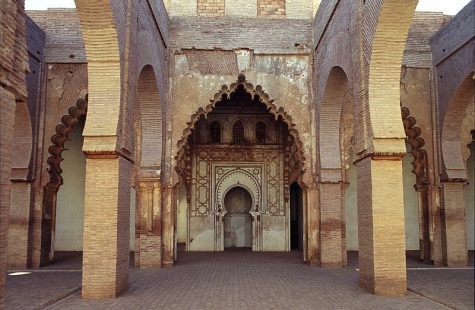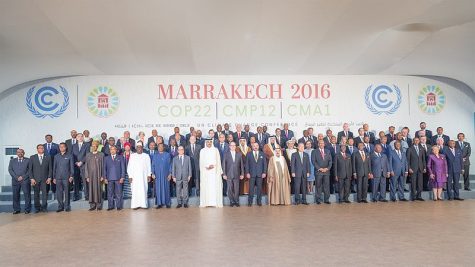Morocco’s Fight Against Climate Change

From November 7th to the 18th, many United Nations world leaders came together in Marrakech, Morocco, to discuss plans to further the fight against climate change at the most recent United Nations Framework Convention on Climate Change (UNFCCC). To accomplish this goal, 175 parties, including the US and China in the UNFCCC signed the Paris Agreement on November 4th. As part of the agreement, each country under it has to try and come up with ways to reduce climate change, and review their plans every five years.
Morocco is the only non-European country in the top twenty of the 2016 Climate Change Climate Change Performance, ranking seventh, with the US behind in thirty-fourth place. Spots one to three are empty because no one country has done extreme climate change performances. Morocco is one out of the five countries to keep its global warming to under two degrees Celsius, with a “sufficient” rating.
Furthermore, Morocco is working on becoming even more energy efficient, and according to the North Africa Post, Morocco’s energy bill decreased by 29.9 percent from July 2015 to 2016, from about 41 billion dirhams to 29 billion dirhams. Said Mouline, director of the National Agency for the Development of Renewable Energy and Energy Efficiency, told CNN his plans on how to conserve energy by sharing his mentality, “We started with a question: How can we decrease our energy bill? This transition has two paths, and renewables are just one. The other is energy efficiency. Both need to be developed at the same time.” Morocco has been taking serious measures to lower their energy bill gradually, such as banning the production and sale of plastic bags, in hopes of lessening plastic pollution.
One of the biggest obstacles Moroccan leaders face is finding a way to finance the project. Morocco opened the largest wind farm in Africa, worth $1.4 billion in 2014. By 2018, it will power a million Moroccan homes and help produce much needed energy. Additionally, German company GIZ is collaborating with Moroccan institutions to help with technological support and finance. One of the first steps Morocco is taking is reducing waste by starting a program that replaces old light bulbs in households with compact fluorescent lamps (CFL), which are more efficient and less wasteful. Although CFLs are six times more expensive, users will be allowed to pay for them in installments, which will eventually help them save money because of the energy efficient light bulbs. According to the United Nations Environment Program’s estimation, power consumption should decrease by 20 percent by just the switching of 40 percent of households by 2021, which cuts almost 3 million tons of carbon dioxide emission. They are looking to a bright future, quite literally.

In order to combat climate change, Morocco plans on turning all of its mosques green. Mosques are important in Morocco, so they are hoping that by turning mosques green, people will be open to discuss. “The good thing about this project is that the Moroccan government came up with the idea themselves. It is something new and really innovative and it has not been tried anywhere else before, to my knowledge,” Kuntze tells the Guardian. According to CNN, they have started modifying 600 mosques with the goal of reaching 15,000 by 2019. Their goal is to use renewable energy like LED lights, photovoltaic electricity, and solar water heating in an attempt to lower their energy bill further. While mosques do not use much energy aside from lighting and water heating, “What we want to do is inform people,” says Mouline. “The ‘green’ mosques are the perfect example of what we’re doing with all our institutions. We started with the mosques because, just like churches or any other religious institution, they can play a very important role in terms of education,” Mouline says to CNN. Since 93 percent of people in Morocco are religious, they hope that it means that 93 percent of people will hear about the green mosques so more people will be aware and try to join the fight against climate change.
There are many obstacles in working against climate change, but Morocco is facing each obstacle step by step. Morocco is taking the fight against climate change very seriously, and hopefully other countries will follow suit.





